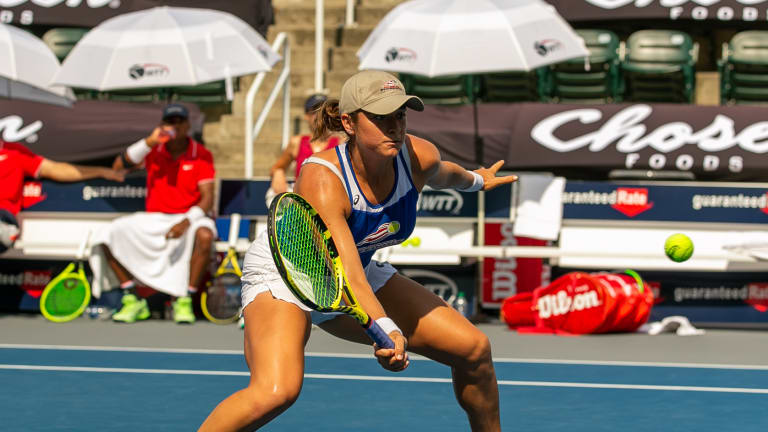Tennis players are given to pivoting, based on the latest information they have, synapses firing fast, as they react to the shot they've just received from their on-court foe.
They've needed a new way to adapt since March, of course. And this thought stays lodged in the minds of many: just how to properly, and continually, return to tennis play. From public parks to private clubs, questions abound in a midst of COVID-19, a living-and-breathing public health crisis.
Now, new offerings in the WTA University program and the updated guidance around health-and-safety protocols are coalescing neatly for such a time as this. It's a time predicated on self-education and adherence—for professionals, and certainly for players at all levels.
These WTA University technologies, created by the tour's partner, SAP, are being put to use to, yes, educate pros on a range of said health-and-safety protocols.
"Especially considering how much we travel, I think it will be a great resource to use on the road," Jessica Pegula, currently frozen at a No. 80 ranking, told Baseline. "The current course on 'return to play' has been super-helpful amidst all the rule changes."

